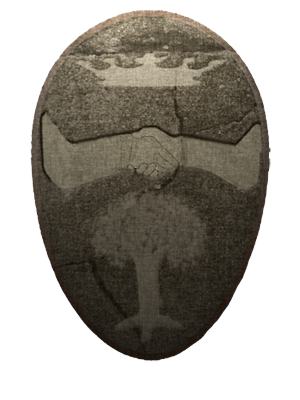









Bruno CarusoBruno Caruso (Italian 1927-2018) Bruno Caruso was a well known Sicilian artist, illustrator and writer whose work has been broadcast throughout Europe and America since the late 1940s. His work has always focussed on the civil and ethical nature of mankind, with subjects ranging from our environmental impact on the planet, right through to the war, politics and the tribulations of his native Palermo. Caruso started painting under the stern gaze of his father as early as age nine, copying works of the ancient masters, in particular those of Leonardo, Mantegna and Pisanello. He studied Classics at University until disrupted by WWII, which in turn inspired his first personal collection: A Study Of Disaster. In the immediate post-war period he journeyed through Paris, up to Prague, Munich, and Vienna, befriending Thomas Mann and Jean Paul Sartre, completing his second collection inspired by George Grosz entitled Deutschland uber alles, and carrying out numerous studies of the works of Klimt and Schiele. Back in Palermo the local peasants fighting for the rights to unoccupied land became the subject of his third collection, during which he struck up an intimate friendship with Li Causi, the rebel leader. Over the next few years he campaigned actively for the cultural emancipation of Sicily, working to contain the rise of the Mafia, and halt political corruption. He took a job in a Palermitan psychiatric unit for a great part of the 1950s, producing a damning study on the conditions of the wards and the use of medieval curing techniques that contributed to a complete overhaul of the system. The rest of the decade was spent travelling through Eastern Europe, and across to the Middle and Far East, examining third world poverty, painting on the subject of famine, overpopulation, and threat of atomic war. He spent long stretches in Syria, also visiting India, Thailand, and Japan before moving to Iran to study Persian calligraphy. On his return to Sicily, Caruso took on the role of Art Director at well regarded cultural magazines including Ciclope and Sicilia, using the friendships forged on his travels with photographers such as Brassai and Richard Avedon to illustrate their pages. The Sixties saw his focus turn to America. Having already seen much of his work head Stateside - including a private exhibition curated by cosmetics industrialist, Helena Rubenstein - he accepted offers of accommodation from fellow painters Ben Shahn and Jack Levine, arriving in time for the Kennedy assassination. The shock of that moment, coupled with meetings with Malcolm X and Tennessee Williams formed the base of his American collection, published in Harpers Baazar, Life and Fortune amongst other magazines. As a card carrying Communist his relationship with the States grew ever more strained. He saw ventures such as the moon landings as a gross misuse of public funds and was so shocked by the abuses of power that took place in Vietnam that he offered his services to the North Vietnamese government, producing a portfolio which documented the many atrocities he witnessed. Throughout his life Caruso has rubbed shoulders with the men who best represented modern times - from Jean Paul Sartre to Camus, Pablo Picasso to Chagall, Ho Chi Minh to Pan Van Dong, Antonioni to Fellini- but as the promise of Communism flickered and died, it left the artist floundering in an ideological vacuum. Flower baskets and Roman ruins became his favoured subjects and, although his popular market increased, the passion for his trade suffered. In his later years Caruso painted in Rome, a reclusive misanthrope engage in a stubborn tussle against the passage of time. He has exhibited at the Venice Biennial in 1954, 1966 and at the Rome Quadriennial in 1955, 1965, 1972. His work is found in major public collections around the world and he has been published in Time, Life, and other magazines. He has also published several books of his own. For more information and access to other works by the artist, please visit the following website: www.bruno-caruso.com Works |